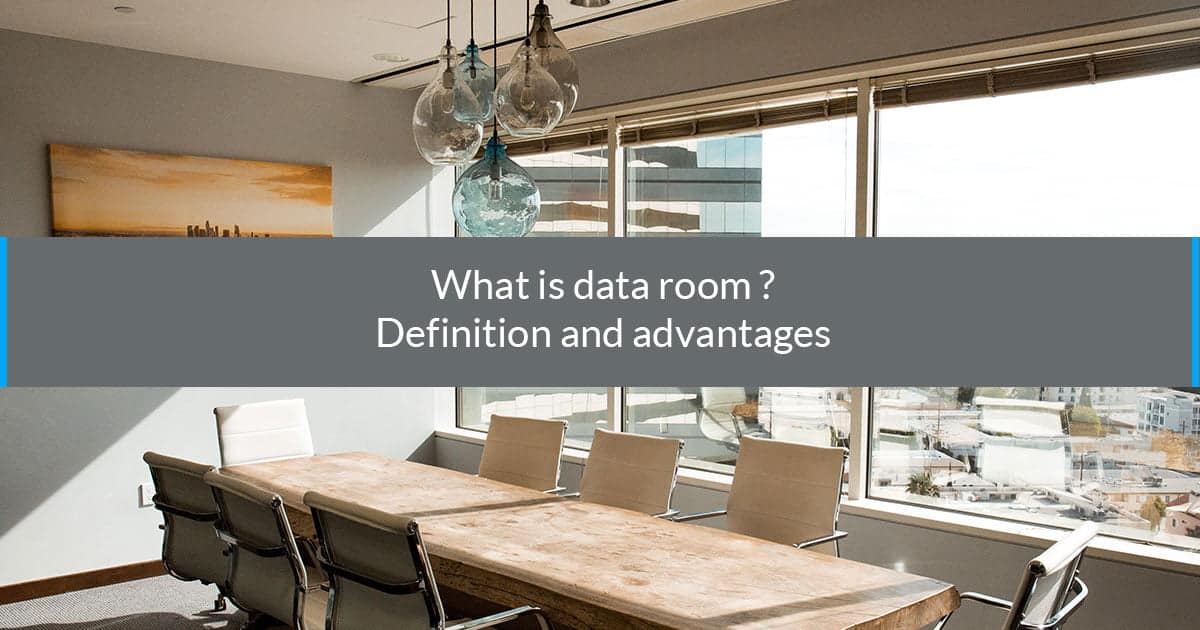Today, more and more companies are facing the issue of having to find secure low-cost solutions to store their confidential data.
Whether you need it for your every-day data or for an extraordinary situation (e.g. a fusion-acquisition project, an important financial transaction, etc…), a data room is an extremely secure solution to house and share information.
In this article you’ll discover what exactly a data room is and why this solution is rising in importance.
What is a data room?
Data rooms are just like safes for confidential information. Whether they are physical or virtual ones, these highly secured spaces can store significant amounts of sensitive data, which only authorised individuals can access.
Traditionally, data rooms were used mainly to secure financial and legal transactions, IPOs or real property. However, in the recent years, they’ve been used for wider purposes such as housing, exchanging and sharing data.
Data rooms allow you to store, download and manage any kinds of documents, from official emails and press articles to graphs, tables and pictures.
Who can access a data room and why?
Any company that might worry about data security can start using a data room.
More broadly, data rooms are usually suitable to organisations dealing with significant amounts of confidential data. These (latter) might need to fulfil data protection standards when sharing information with different audiences (i.e. their employees, clients, users, suppliers). Due to their volume as well as to their confidential nature, documents such as contracts, financing and accounting solutions cannot be sent by email but require a more collaborative and secured channel.
According to the website Antinno.net, there are many reasons to use data rooms. The most common scenario is a company needing to share information in a secured way with partners from another company – especially during complex transactions when confidentiality is essential.
Instances include:
- Fusion-acquisition,
- Fundraising,
- Corporate restructuring,
- Strategic partnerships,
- Tendering procedures (especially in delicate contexts such as the nuclear or military industries, etc.)
Data rooms are of rising importance in international environments as well as in companies that rely on digitalised data.
What are the major advantages?
Data rooms present multiple advantages. Here are only five of them:
1. Data Protection
This is undoubtedly the main reason why most companies decide to switch to a data room. Access to the information is restricted and only authorised people can consult it.
On top of all the basic functions, data rooms offer many options that allow to increase the security and confidentiality of the data:
- Protection against spyware and other malicious software (malware);
- A complex authentication/authorisation system;
- Data backup;
- File encryption.
2. Easy access and gain in time
In the digital age we live in, printing out sheets of paper, archiving them into folders and finding them some room seems absolutely obsolete. And such a waste of time! Plus, whenever you need a document, you physically have to move and find it, scan it, send it and finally put it back in its original place.
A data room, on the other hand, would allow you to utilise easily and efficiently a great volume of data. Finding and sharing a document would only be a matter of clicks since the majority of data rooms have powerful research engines that help you do this very quickly.
Sharing information is also completely secure.
3. Better control over access
In any business, it’s essential that documents don’t fall into the wrong hands. When you store information in a data room, as owner of the document, you can decide who can access it. Overall, data rooms ensure that your documents don’t get lost, they’re consulted by the right people and you have full control on any edits. You can change all these features at your convenience.
4. Functionality and transparency
Data rooms also have the advantage of being extremely user-friendly. You can access them from anywhere from any device (smartphones, tablets, laptops, etc.), unlike the old physical archives.
Moreover, data rooms encourage extreme transparency as you get notified every time someone makes an edit. You also have access to the activity history of every document (e.g. the detailed number of visits daily, weekly and monthly, who viewed and edited the document etc), which might turn out to be a strategic weapon when doing a transaction.
5. Reduced expenses
Since all the documents are stored online, you will save money in general office equipment such as toner cartridges and paper.
Conclusion
With cybercrime becoming more and more threatening, investing in data protection is a top priority of any enterprises striving to maintain high safety and a good reputation.
Handling a volume of confidential data definitely requires using a data room. Not only will you be in control of your data sharing it with some selected people, but you will also be able to monitor its access reducing the risk of leakage.










